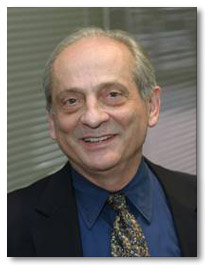The Power Of a Father's Strong Faith
- THOMAS WILLIAMS, LC
In his new book Faith of the Fatherless: The Psychology of Atheism, Paul Vitz makes an impressive case that atheism, and not religion, is the truly pathological phenomenon.
 |
Paul
Vitz |
Nowadays we are used to public buffoons spouting contemptuous views of religion. Thus we are hardly surprised when the wrestler-governor Jesse Ventura offers us his understanding of religion as "a sham for weak-minded people," or when population crusader Ted Turner derides Christianity as a "religion for losers."
Such views merely mirror the popular wisdom that sees religion as a crutch or a drug for those too fainthearted to face reality. Since the 19th century, psychologists have sought to explain away belief in God as wishful thinking or a projection of a childish need for security. The truly mature and psychologically sound, our popular culture assures us, can strut proudly through life without having to fall back on religious faith.
But now along comes Paul Vitz of New York University to stand Sigmund Freud on his head. In his new book Faith of the Fatherless: The Psychology of Atheism, Vitz makes an impressive case that atheism, and not religion, is the truly pathological phenomenon requiring a psychological explanation. On studying the lives of more than a dozen prominent atheists, Vitz discovered an alarming trend. In case after case he found that those who rejected God had suffered from a defective relationship with their earthly fathers. The fact that their fathers had died, or abused or abandoned them, seemed directly linked to their denial of God. Rejection of God followed on rejection of their fathers as inadequate and unworthy of trust.
Friedrich Nietzsche, the German philosopher who despised Christianity as a refuge of the weak and proclaimed the death of God, had known his father as a sickly man who died when Friedrich was still young. According to Vitz, Nietzsche experienced "a strong, intellectually macho reaction against a dead, very Christian father."
Sigmund Freud himself disdained his weak father, who he claimed was a sexual pervert. Freud's hostility toward religion stemmed not from clinical studies (he had little experience with genuinely religious patients), but from his own hatred of his father. He would write that "the personal god is ... nothing but an exalted father" and that once the father's authority breaks down, children lose their religious belief. Freud's own father, a devout Jew, was a feeble, passive man, and unable to support his family. This earned him contempt from Sigmund, who felt that his father's passivity and perversion were "clearly connected to Judaism and God."
Vitz finds similar circumstances at the root of the atheism of the French philosopher Voltaire, who hated his father and even changed his surname to dissociate himself from him, and in the existentialist atheist Jean Paul Sartre, who lost his father when he was a baby. Sartre's mother remarried when he was 12, and he deeply resented his new stepfather. Soon afterward Sartre reached the conclusion that "God doesn't exist."
Many famous political atheists, too, suffered from similarly defective relationship with their fathers. Joseph Stalin's father used to beat him unmercifully, for which Stalin hated and resented him. "It is not difficult," Vitz writes, "to understand why communism, with its explicit rejection of God and all other higher authorities ... had great appeal for him." Hitler's father gave him terrible beatings as well, and died when Adolf was just 14. And Vitz credits Mao Zedong's tyrannical father with teaching him "his first appreciation of revolution and rebellion in his own family setting."
America's most outspoken atheist, Madalyn Murray O'Hair, despised her father to the point of physical violence. O'Hair's son William has recounted how once she tried to kill her father with a butcher knife.
As a control group, Vitz went on to study prominent religious believers from the same historical periods. As it turns out, every theist he studied enjoyed a strong, loving bond with his father, or with a male mentor that served as a father substitute. The renowned French philosopher and mathematician Blaise Pascal was educated at home by his Catholic father, and the two had a close, affectionate relationship. John Henry Newman, Alexis de Tocqueville, Samuel Wilberforce, G.K. Chesterton and Dietrich Bonhoffer also enjoyed close, loving relationships with their earthly fathers, and went on to become great defenders of Christianity.
Obviously the complex phenomenon of atheism stems from a multiplicity of factors, and cannot be reduced to a single cause. Still, Vitz's research highlights the vital importance of a good father for the development of children's religious faith. How can a child learn to love and trust his Father in heaven, if he has never known the faithfulness of a father on earth? In a society where nearly 50% of children spend a significant portion of their childhood living apart from their fathers, this question cannot be taken lightly.
 This is Meaghen Gonzalez, Editor of CERC. I hope you appreciated this piece. We curate these articles especially for believers like you.
This is Meaghen Gonzalez, Editor of CERC. I hope you appreciated this piece. We curate these articles especially for believers like you.
Please show your appreciation by making a $3 donation. CERC is entirely reader supported.

Acknowledgement
Father Thomas Williams. "The Power Of a Father's Strong Faith." National Catholic Register. (Jan. 30 - Feb. 5, 2000).
Reprinted by permission of the National Catholic Register. To subscribe to the National Catholic Register call 1-800-421-3230.
The Author
Father Thomas D. Williams, LC, is dean of the theology school at Rome’s Regina Apostolorum university where he teaches Catholic social doctrine, and is a Vatican analyst for NBC News and MSNBC. Father Williams is on the advisory board of the Catholic Education Resource Centre.
Copyright © 2000 National Catholic Register



